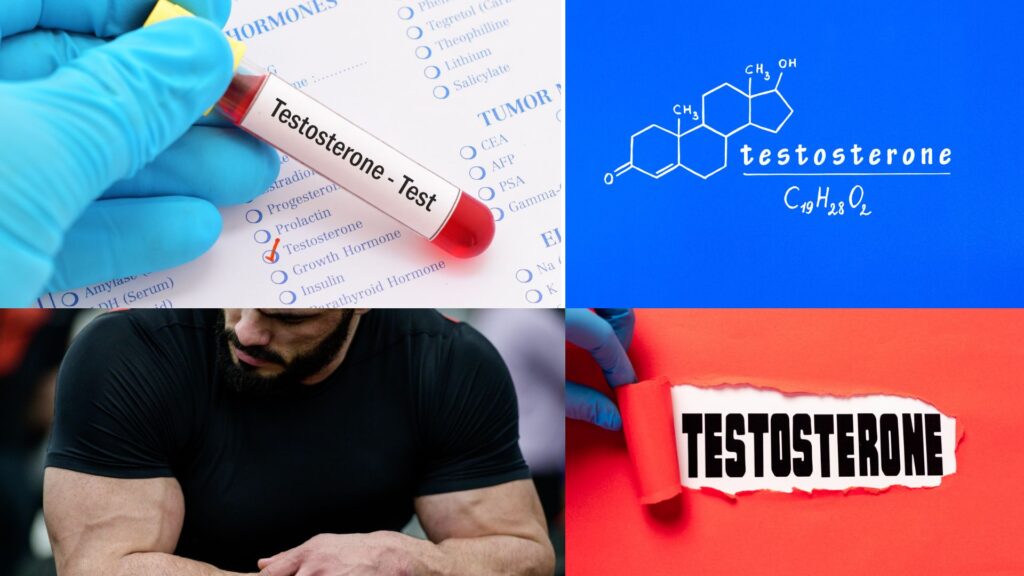Testosterone is a crucial hormone that plays a significant role in men’s overall health and well-being. It is responsible for maintaining muscle mass, bone density, red blood cell production, and sex drive. However, as men age, their testosterone levels naturally decline, which can lead to various health issues. Fortunately, there are several natural methods you can incorporate into your lifestyle to help increase testosterone levels. In this article, we will explore effective strategies and learn how to increase testosterone and promote a healthier, more vibrant life.
Understanding Testosterone

Testosterone is a hormone primarily produced in the testicles. It is responsible for the development of male sexual characteristics during puberty and is crucial for sperm production and sexual function. Testosterone levels are also linked to mood, cognitive function, and overall energy levels.
The Impact of Low Testosterone
Low testosterone levels can lead to a variety of symptoms and health issues. Some common signs of low testosterone include reduced sex drive, erectile dysfunction, fatigue, decreased muscle mass, increased body fat, depression, and mood swings. It is essential to address these symptoms to maintain optimal health and well-being.
How To Increase Testosterone By Lifestyle changes
Diet and Nutrition
A healthy diet plays a crucial role in maintaining optimal testosterone levels. Include foods rich in zinc, vitamin D, and omega-3 fatty acids, such as lean meats, fish, nuts, and seeds. Avoid excessive consumption of processed foods, sugar, and alcohol, as they can negatively affect hormone production.
Regular Exercise
Engaging in regular physical activity is an excellent way to boost testosterone levels. Both aerobic exercise and strength training have shown positive effects on testosterone production. Incorporate activities like weightlifting, high-intensity interval training (HIIT), and compound exercises into your fitness routine.
Quality Sleep
Adequate sleep is vital for hormone regulation, including testosterone. Aim for 7-8 hours of uninterrupted sleep each night to optimize hormone production and overall well-being. Create a sleep-friendly environment and establish a consistent sleep schedule to improve sleep quality.
Stress Management
Chronic stress can negatively impact testosterone levels. Incorporate stress management techniques such as meditation, deep breathing exercises, yoga, or engaging in hobbies to reduce stress levels. Prioritizing self-care and relaxation can help promote hormonal balance.
Natural Supplements and Herbs
Certain natural supplements and herbs have shown potential in boosting testosterone levels. These include:
D-Aspartic Acid: This amino acid plays a role in testosterone synthesis and may enhance sperm production.
Ashwagandha: An adaptogenic herb known for its stress-reducing properties, it may also help increase testosterone levels.
Fenugreek: This herb has been traditionally used to enhance libido and testosterone levels.
Vitamin D: Adequate vitamin D levels are essential for testosterone production. Consider getting tested and supplementing if necessary.
Weight Management and Testosterone
Maintaining a healthy weight is crucial for optimal testosterone levels. Excess body fat, especially around the abdomen, can contribute to lower testosterone production. Incorporate a balanced diet and regular exercise to achieve and maintain a healthy weight.
The Role of Resistance Training
Engaging in resistance training, such as weightlifting, can have a significant impact on testosterone levels. Compound exercises that target multiple muscle groups, like squats and deadlifts, are particularly effective. Aim for at least three strength training sessions per week.
Avoiding Hormone Disruptors
Certain chemicals found in everyday products can disrupt hormone production and function. Minimize exposure to substances such as BPA, phthalates, and parabens by using BPA-free containers, opting for natural personal care products, and choosing organic produce whenever possible.
Healthy Habits for Optimal Testosterone Levels
In addition to the strategies mentioned above, adopting the following habits can further support healthy testosterone levels:
- Stay hydrated throughout the day.
- Minimize alcohol consumption.
- Quit smoking or reduce tobacco use.
- Manage your overall stress levels.
- Maintain a healthy social life and engage in positive relationships.
- Seeking Medical Advice
If you suspect you have low testosterone or are experiencing persistent symptoms, it is crucial to consult with a healthcare professional. They can conduct appropriate tests, diagnose any underlying conditions, and recommend personalized treatment options if necessary.
Conclusion
Optimizing testosterone levels is essential for men’s overall health and well-being. By implementing lifestyle changes such as a healthy diet, regular exercise, quality sleep, stress management, and avoiding hormone disruptors, you can naturally boost your testosterone levels. Remember to consult with a healthcare professional if you have concerns about your testosterone levels or experience persistent symptoms.
You may also be interested in our Article: Do Testosterone make you taller?
FAQs
1. Can certain foods increase testosterone levels?
While no food can directly increase testosterone levels, certain nutrients like zinc and vitamin D are essential for testosterone production. Including foods rich in these nutrients can support optimal hormone levels.
2. Can exercise help boost testosterone?
Yes, both aerobic exercise and strength training have been shown to increase testosterone levels. Engaging in regular physical activity is beneficial for overall hormone balance.
3. Are testosterone supplements safe to use?
Testosterone supplements should only be used under the guidance of a healthcare professional. They are typically prescribed for individuals with clinically diagnosed low testosterone levels.
4. How long does it take to see results from lifestyle changes?
Results can vary depending on the individual and their current lifestyle. With consistent effort, it may take several weeks to months to notice significant improvements in testosterone levels.
5. Are there any side effects of increasing testosterone levels naturally?
When increasing testosterone levels naturally through lifestyle changes, there are typically no significant side effects. However, it’s essential to maintain a balanced approach and consult with a healthcare professional if you have any concerns.
You may wan to to Know more about testosterone.





